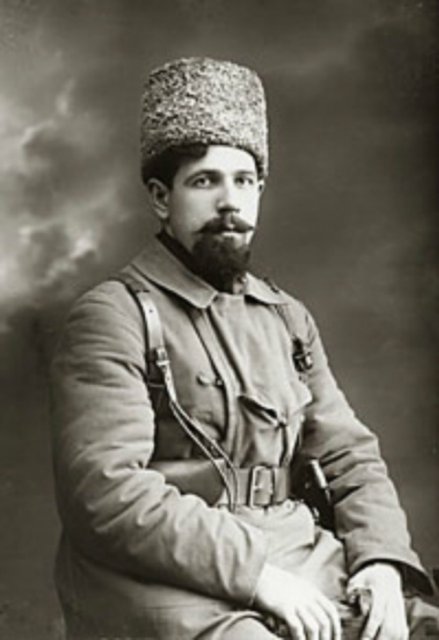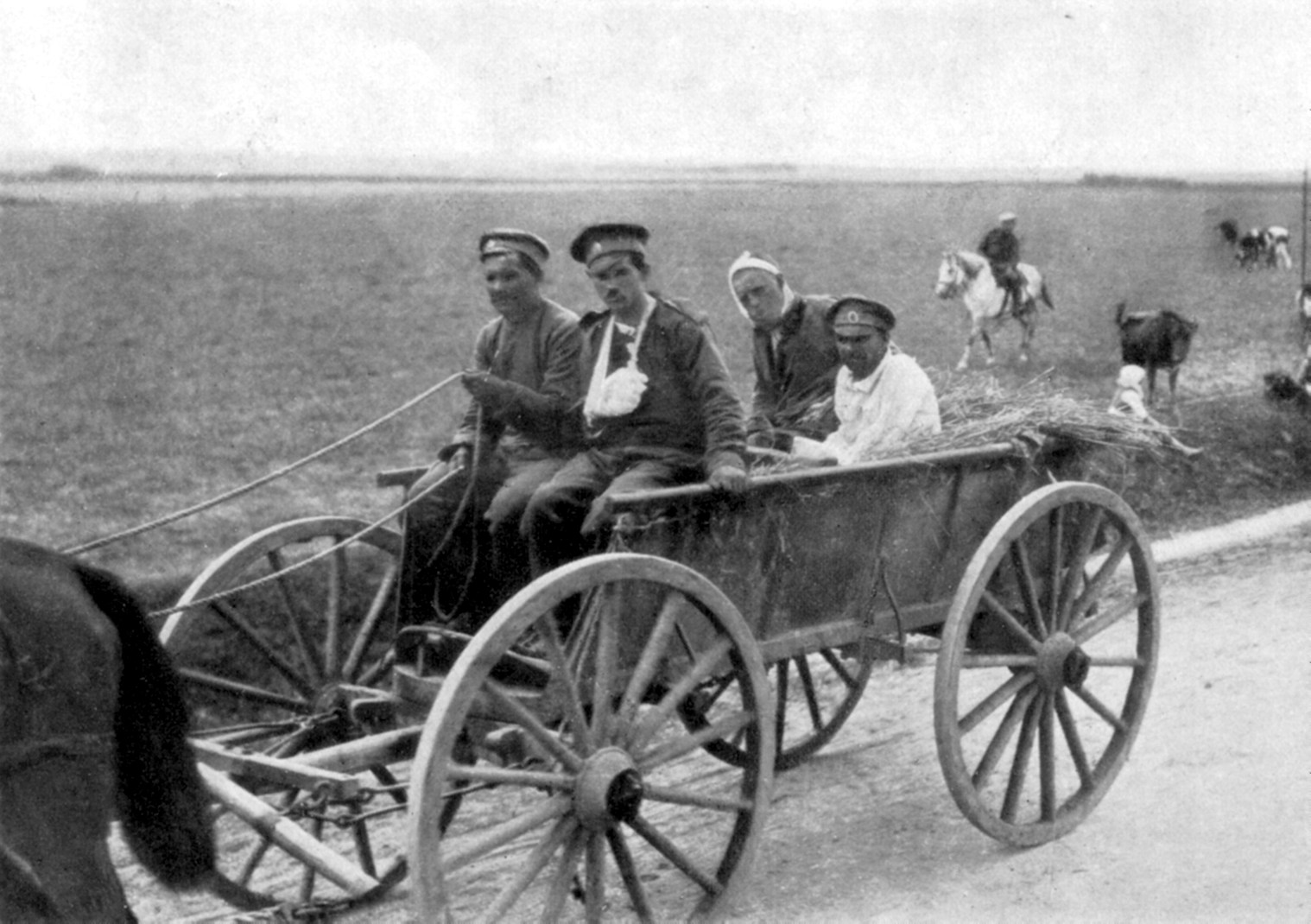|
Tsentrobalt
The Central Committee of the Baltic Fleet (Tsentrobalt) was a committee for coordination of the activities of sailors' committees of the Russian Baltic Fleet. It was established on 11–13 May (28–30 April, Old Style) 1917, after the February Revolution. Its first chairman was Pavel Dybenko. In December the office of the Baltic Fleet Commander-in-Chief and his staff were abolished, and Tsentrobalt assumed the full power over the Fleet. In January 1918, the 5th convocation of Tsentrobalt was under the domination of the Anarchists. Tsentrobalt was abolished on February 13 (January 31 O.S.) 1918 due to the introduction of a new structure: Baltic Fleet Council of Commissars. '' |
October Revolution
The October Revolution, also known as the Great October Socialist Revolution (in Historiography in the Soviet Union, Soviet historiography), October coup, Bolshevik coup, or Bolshevik revolution, was the second of Russian Revolution, two revolutions in Russia in 1917. It was led by Vladimir Lenin's Bolsheviks as part of the broader Russian Revolution of 1917–1923. It began through an insurrection in Petrograd (now Saint Petersburg) on . It was the precipitating event of the Russian Civil War. The initial stage of the October Revolution, which involved the assault on Petrograd, occurred largely without any casualties. The October Revolution followed and capitalized on the February Revolution earlier that year, which had led to the abdication of Nicholas II and the creation of the Russian Provisional Government. The provisional government, led by Alexander Kerensky, had taken power after Grand Duke Michael Alexandrovich of Russia, Grand Duke Michael, the younger brother of ... [...More Info...] [...Related Items...] OR: [Wikipedia] [Google] [Baidu] |
Pavel Dybenko
Pavel Efimovich Dybenko (; ; 16 February 1889 – 29 July 1938) was a Bolsheviks, Bolshevik revolutionary and a leading Soviet Union, Soviet officer and military commander. He was arrested, tortured and executed during the Great Purge and subsequently rehabilitated during the Khrushchev Thaw. Prior to military service Pavel Dybenko was born in Lyudkovo village, Novozybkov ''uyezd'', Chernigov ''guberniya'', Imperial Russia (now Novozybkov, Bryansk Oblast, Russia) into a Ukrainians, Ukrainian peasant family. He was one of six children raised on an eight-acre farm. His parents owned one horse and one cow. In 1907 he started working in the local Treasury department, but was fired as "untrustworthy" due to his political activities. From 1907 onward, Dybenko became active in a Bolshevik group, distributing revolutionary literature, such as the ''People’s Gazette'' and the ''Proletariat'', which spoke to anti-Tsar sympathies, throughout the Novozybkov region. He moved to Riga and ... [...More Info...] [...Related Items...] OR: [Wikipedia] [Google] [Baidu] |
Baltic Fleet
The Baltic Fleet () is the Naval fleet, fleet of the Russian Navy in the Baltic Sea. Established 18 May 1703, under Tsar Peter the Great as part of the Imperial Russian Navy, the Baltic Fleet is the oldest Russian fleet. In 1918, the fleet was inherited by the Russian Soviet Federative Socialist Republic, Russian SFSR which then founded the Soviet Union in 1922, where it was eventually known as the Twice Red Banner(ed) Baltic Fleet as part of the Soviet Navy, as during this period it gained the two awards of the Order of the Red Banner. Following the collapse of the Soviet Union in 1991, the Baltic Fleet was inherited by the Russian Federation and reverted to its original name as part of the Russian Navy. The Baltic Fleet is headquartered in Kaliningrad and its main base is in Baltiysk (Pillau), both in Kaliningrad Oblast, while another base is in Kronstadt, Saint Petersburg, in the Gulf of Finland. Imperial Russia The Imperial Russian Baltic Fleet was created during the Gre ... [...More Info...] [...Related Items...] OR: [Wikipedia] [Google] [Baidu] |
Old Style
Old Style (O.S.) and New Style (N.S.) indicate dating systems before and after a calendar change, respectively. Usually, they refer to the change from the Julian calendar to the Gregorian calendar as enacted in various European countries between 1582 and 1923. In England, Wales, Ireland and Britain's American colonies, there were two calendar changes, both in 1752. The first adjusted the start of a new year from 25 March (Lady Day, the Feast of the Annunciation) to 1 January, a change which Scotland had made in 1600. The second discarded the Julian calendar in favour of the Gregorian calendar, skipping 11 days in the month of September to do so.. "Before 1752, parish registers, in addition to a new year heading after 24th March showing, for example '1733', had another heading at the end of the following December indicating '1733/4'. This showed where the Historical Year 1734 started even though the Civil Year 1733 continued until 24th March. ... We as historians have no excus ... [...More Info...] [...Related Items...] OR: [Wikipedia] [Google] [Baidu] |
February Revolution
The February Revolution (), known in Soviet historiography as the February Bourgeois Democratic Revolution and sometimes as the March Revolution or February Coup was the first of Russian Revolution, two revolutions which took place in Russia in 1917. The main events of the revolution took place in and near Petrograd (now Saint Petersburg), the then-capital of Russia, where long-standing discontent with the monarchy erupted into mass protests against food rationing on 23 February Old Style and New Style dates, Old Style (8 March Old Style and New Style dates, New Style). Revolutionary activity lasted about eight days, involving mass demonstrations and violent armed clashes with police and Special Corps of Gendarmes, gendarmes, the last loyal forces of the Russian monarchy. On 27 February O.S. (12 March N.S.), most of the forces of the capital's garrison sided with the revolutionaries. In the same day, the Russian Provisional Government, made up by left-leaning State Duma (Russ ... [...More Info...] [...Related Items...] OR: [Wikipedia] [Google] [Baidu] |
Anarchism In Russia
Anarchism in Russia developed out of the Narodniks, populist and Russian nihilist movement, nihilist movements' dissatisfaction with the Government reforms of Alexander II of Russia, government reforms of the time. The first Russian to identify himself as an anarchist was the revolutionary socialism, revolutionary socialist Mikhail Bakunin, who became a founding figure of the modern anarchist movement within the International Workingmen's Association (IWA). In the context of the Hague Congress (1872), split within the IWA between the Marxism, Marxists and the anarchists, the Russian Land and Liberty (Russia), Land and Liberty organization also split between a Black Repartition, Marxist faction that supported political struggle and an Narodnaya Volya, anarchist faction that supported "propaganda of the deed", the latter of which went on to orchestrate the Assassination of Alexander II of Russia, assassination of Alexander II of Russia, Alexander II. Specifically anarchist groups s ... [...More Info...] [...Related Items...] OR: [Wikipedia] [Google] [Baidu] |
Baltic Fleet Council Of Commissars
Baltic may refer to: Peoples and languages *Baltic languages, a subfamily of Indo-European languages, including Lithuanian, Latvian and extinct Old Prussian *Balts (or Baltic peoples), ethnic groups speaking the Baltic languages and/or originating from the Baltic countries *Baltic Germans, historical ethnic German minority in Latvia and Estonia *Baltic Finnic peoples, the Finnic peoples historically inhabiting the area on the northeastern side of the Baltic sea Places Northern Europe * Baltic Sea, in Europe * Baltic region, an ambiguous term referring to the general area surrounding the Baltic Sea * Baltic states (also Baltic countries, Baltic nations, Baltics), a geopolitical term, currently referring to Estonia, Latvia and Lithuania * Baltic Provinces or governorates, former parts of the Swedish Empire and then Russian Empire (in modern Latvia, Estonia) * Baltic Shield, the exposed Precambrian northwest segment of the East European Craton * Baltic Plate, an ancient tectonic pl ... [...More Info...] [...Related Items...] OR: [Wikipedia] [Google] [Baidu] |
Great Soviet Encyclopedia
The ''Great Soviet Encyclopedia'' (GSE; , ''BSE'') is one of the largest Russian-language encyclopedias, published in the Soviet Union from 1926 to 1990. After 2002, the encyclopedia's data was partially included into the later ''Great Russian Encyclopedia'' in an updated and revised form. The GSE claimed to be "the first Marxist–Leninist general-purpose encyclopedia". Origins The idea of the ''Great Soviet Encyclopedia'' emerged in 1923 on the initiative of Otto Schmidt, a member of the Russian Academy of Sciences. In early 1924 Schmidt worked with a group which included Mikhail Pokrovsky, (rector of the Institute of Red Professors), Nikolai Meshcheryakov (Former head of the General Directorate for the Protection of State Secrets in the Press, Glavit, the State Administration of Publishing Affairs), Valery Bryusov (poet), Veniamin Kagan (mathematician) and Konstantin Kuzminsky to draw up a proposal which was agreed to in April 1924. Also involved was Anatoly Lunacharsky, People' ... [...More Info...] [...Related Items...] OR: [Wikipedia] [Google] [Baidu] |
Organizations Of The Russian Revolution
An organization or organisation (Commonwealth English; see spelling differences) is an entity—such as a company, or corporation or an institution (formal organization), or an association—comprising one or more people and having a particular purpose. Organizations may also operate secretly or illegally in the case of secret societies, criminal organizations, and resistance movements. And in some cases may have obstacles from other organizations (e.g.: MLK's organization). What makes an organization recognized by the government is either filling out incorporation or recognition in the form of either societal pressure (e.g.: Advocacy group), causing concerns (e.g.: Resistance movement) or being considered the spokesperson of a group of people subject to negotiation (e.g.: the Polisario Front being recognized as the sole representative of the Sahrawi people and forming a partially recognized state.) Compare the concept of social groups, which may include non-organiza ... [...More Info...] [...Related Items...] OR: [Wikipedia] [Google] [Baidu] |
1917 Establishments In Russia
Events Below, the events of World War I have the "WWI" prefix. January * January 9 – WWI – Battle of Rafa: The last substantial Ottoman Army garrison on the Sinai Peninsula is captured by the Egyptian Expeditionary Force's Desert Column. * January 10 – Imperial Trans-Antarctic Expedition: Seven survivors of the Ross Sea party are rescued after being stranded for several months. * January 11 – Unknown saboteurs set off the Kingsland Explosion at Kingsland (modern-day Lyndhurst, New Jersey), one of the events leading to United States involvement in WWI. * January 16 – The Danish West Indies is sold to the United States for $25 million (equivalent to $ million in ). * January 22 – WWI: United States President Woodrow Wilson calls for "peace without victory" in Germany. * January 25 – WWI: British armed merchantman is sunk by mines off Lough Swilly (Ireland), with the loss of 354 of the 475 aboard. * January 26 – The se ... [...More Info...] [...Related Items...] OR: [Wikipedia] [Google] [Baidu] |





